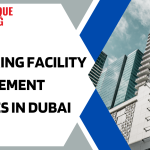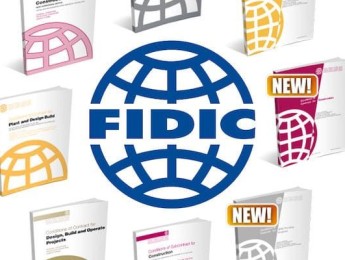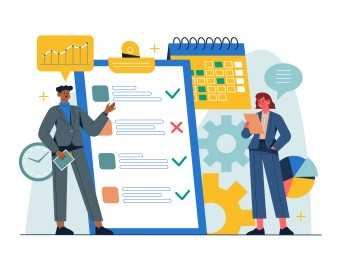Facilities management is a necessity within various organisations, particularly property management. It is the overall management of specific building features and facilities, including maintenance, cost, efficiency, and how they best meet the occupants' needs.
Facilities management professionals must focus on maintaining the physical function and safety of the facilities to ensure full satisfaction from occupants. A range of techniques and methods ensure this is conducted in a timely manner and to the highest standard. These best practices also ensure all facilities fully comply with relevant health and safety and housing/building regulations.
Furthermore, a major factor of facilities management is engaging with the occupants personally. Developing a positive relationship with the occupants will allow them to feel more comfortable approaching management to help resolve issues. As the users of the buildings, they can also provide valuable feedback regarding the functionality of the facilities and how they could be improved in the future.
Upon completion of this course, participants will be able to:
- Understand the importance of meeting industry standards and engaging in best practices within facilities management.
- Maximise occupant comfort, satisfaction, and well-being.
- Conduct regular risk assessments and establish a risk management plan detailing risks, preventative measures, and corrective action.
- Increase the productivity of the building and ensure accessibility.
- Manage and reduce operation costs, energy usage, carbon emissions and environmental impact.
- Optimise building and facilities value.
- Innovate and establish strategies for continuous improvement and sustainable operation.
- Closely monitor results and measure performance throughout to ensure facilities are working efficiently.
This course is designed for anyone within facilities management who wishes to develop their knowledge surrounding best practices. It would be most beneficial for:
- Facilities Managers
- Operations Managers
- HSE Officers
- Compliance Officers
- Risk Analysts
- Contractors and Sub-contractors
- Financial Advisors
This course uses a variety of adult learning styles to aid full understanding and comprehension. Participants will investigate case studies of established facilities management within organisations to highlight key practices contributing to their success and identify possible areas for improvement.
They will participate in various learning methods to encourage the full development and understanding of the content taught. These methods include presentations, group discussions, role-playing activities, and practical activities. This combination of methods guarantees that the participants will gain a well-rounded comprehension of all related skills and topics and allows them to demonstrate these with their peers.
Day 5 of each course is reserved for a Q&A session, which may occur off-site. For 10-day courses, this also applies to day 10
Section 1: Fundamentals of Facilities Management
- Define facilities management, its importance and necessity within an organisation.
- Identifying different features within a building and how these come under facilities management.
- Understanding the consequences of poor facilities management on the occupants and the organisation.
- Who is involved in the process of facilities management, and what are their common skills, competencies, and responsibilities?
Section 2: Maintenance and Control
- Identifying what facilities need regular maintenance and creating a plan detailing the required maintenance and its frequency.
- Prioritising maintenance tasks based on severity and risk to life and addressing them accordingly.
- Managing upkeep and repair costs.
- Ensuring all safety procedures are in working order – fire doors, extinguishers, and security alarms.
Section 3: Facilities Management Strategies
- Utilising innovative techniques to strategise ideal management methods and processes.
- The key aspects of managing facilities and people efficiently.
- Regularly monitoring the performance of facilities and FM professionals to evaluate productivity and safety.
- Using performance information to implement the most effective strategies in the crucial areas.
- Balancing the ‘up-time’ and ‘down-time’ of various facilities to reduce occupant inconvenience.
Section 4: Risk Management
- Exploring relevant health and safety regulations to guarantee all building functions are compliant.
- Conducting regular risk assessments to recognise facilities of high risk.
- Seeking the necessary accreditation systems regarding safety, quality, and environment.
- Utilising risk analysis data to implement thorough preventative measures and establish potential corrective actions for all risks.
Section 5: Customer Focus
- Closely merging business goals and objectives with occupant needs.
- Engaging with the occupant through open communication to ensure a full understanding of their wants and needs.
- Discussing the reasonableness of requests and working to find a satisfactory compromise if possible.
- Conducting customer satisfaction research.
- Receiving contrastive feedback and incorporating suggestions into existing goals and objectives.
Upon successful completion of this training course, delegates will be awarded a Holistique Training Certificate of Completion. For those who attend and complete the online training course, a Holistique Training e-Certificate will be provided.
Holistique Training Certificates are accredited by the British Assessment Council (BAC) and The CPD Certification Service (CPD), and are certified under ISO 9001, ISO 21001, and ISO 29993 standards.
CPD credits for this course are granted by our Certificates and will be reflected on the Holistique Training Certificate of Completion. In accordance with the standards of The CPD Certification Service, one CPD credit is awarded per hour of course attendance. A maximum of 50 CPD credits can be claimed for any single course we currently offer.
- Course Code IND21-110
- Course Format Classroom, Online,
- Duration 5 days














